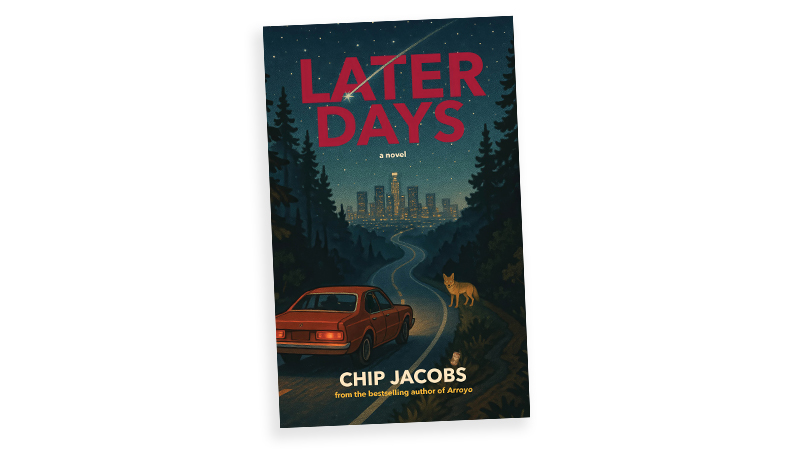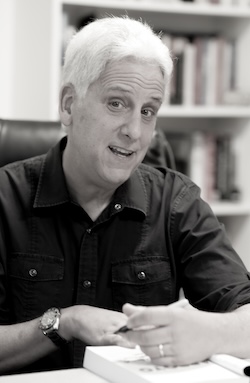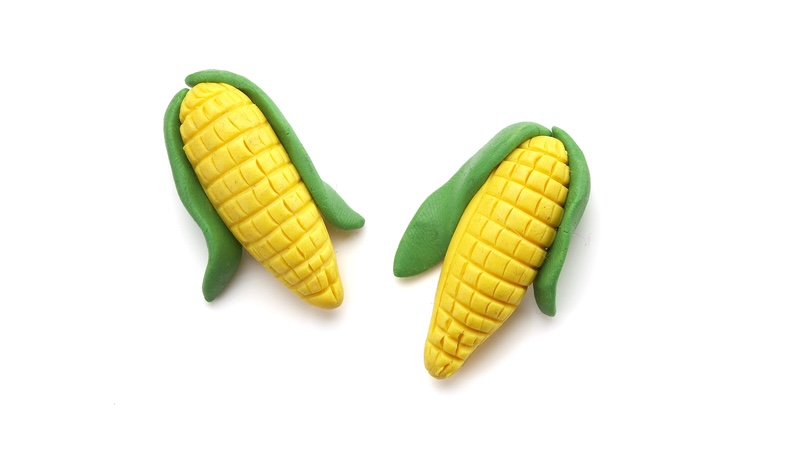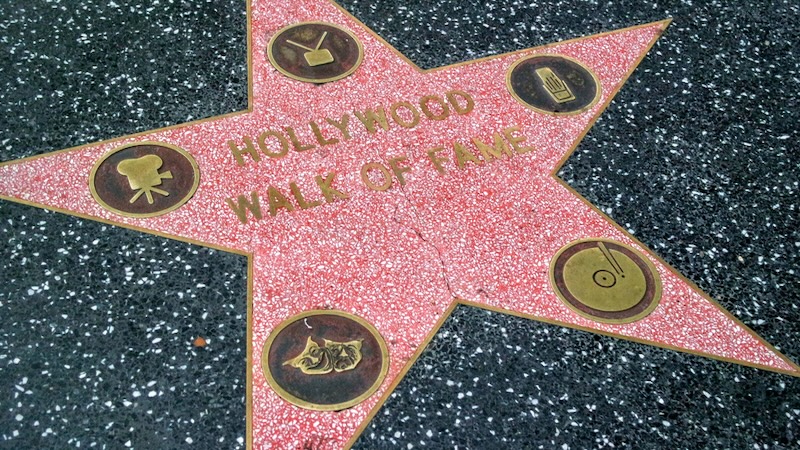The Lost Art of Album Release Parties
Memories of youthful enthusiasm and good-natured debates

“Music – whether consumed from mixed tapes, hi-fis, radio stations, or at bawdy rock concerts – was always best as a communal experience. A shared event,” opines Chip Jacobs author of a new book, “Later Days.” He recalls the small, private album release parties of his youth in the 1970s. Can you relate to his nostalgia?
We hustled into my room, nodding at the familiar, Jimmy Page poster on the wall, stoked for the teenage ritual we had down pat. At late-1970s, album-release parties, you see, the drop of the record needle was our church bell, and today’s tolling was for the band that could do hard-rock no wrong, at least in my fanboy heart.
Before my stereo blasted out Led Zeppelin’s hotly awaited LP, its first in forever, we’d obliged tradition, fortifying ourselves for the music roundtable afterwards with frosted Pop Tarts and thinking-man’s soda, Dr. Pepper. Then we positioned ourselves around the speakers we expected to blow our socks off, me leaning back on my bed, while a pal we’ll tab Carl sat in my worn recliner and another bud, RG, in the pudding-brown bean bag that’d miraculously survived my adolescence so far.
Song after song, seven in all, rang out that summer day in Jimmy Carter’s America. Seven mostly disappointing songs, that left me feeling gloomy and gyped.
“They’re done,” I remember huffing. “A country western song called ‘Hot Dog’? Sappy ballads. All that keyboard. I think I might puke.” Now that the Gods had fallen in a vinyl thunderclap, I fantasized about Frisbee-ing the “Casa-Blanca” style album cover for “In Through the Out Door” off our deck.
Carl, natty in tie-dye and flipflops, shot me a sympathetic glance. I’d been at an album-release party last year when Queen, his Numero Uno group, rolled out the record with “We Will Rock You” and other radio-friendly hits on it, straying from the band’s avant-garde roots. Cross-legged in his clothes-landfill of a room, all of us lightly buzzed from mediocre, junior-year Sinsemilla, Carl hadn’t moped like me now. He acted betrayed, like E tu, Freddie Mercury?
“They all do this,” he said consolingly, sensing my letdown. “These innovative groups forget who they are once the record companies wave a big bag of cash under their noses.”
RG, who prayed at the altar of Zep’s drummer, the ferocious-pounding John Bonham, wasn’t convinced my negativism meant our 1979 listening party should reclassify into a funeral.
“I don’t know, man, I kinda like the new styles they’re trying. They can’t live off ‘Kashmir’ and ‘Stairway to Heaven’ forever.”
Carl and I scowled a “Zip it” at him, but what are musical opinions if they’re unworthy of voicing?
And you better believe we appeared at these casual gatherings armed with stout views, sometimes even with dog-eared Rolling Stone magazine reviews to buttress us. Hearing the crinkle of that industrial-smelling cellophane being removed was the sweet warm-up. It was the hiss of the record stylus touching down on the disc that was the starter pistol, a nudge to have a well-reasoned critique of what you just heard ready or you might have your volume turned down next time.
In our suburban, L.A. ecosystem then, music – whether consumed from mixed tapes, hi-fis, radio stations, or at bawdy rock concerts – was always best as a communal experience. A shared event. Of all those, there was nothing like bonding in somebody’s room, parents outlawed, beat thumping, to deconstruct what the lyrics signified, and whether the music itself represented creative transcendence, indifference, or just selling out.
Beneath the surface lurked other motivations. Boy code at our Lord-of-the-Flies-esque prep school mandated you reveal as little as necessary about troubles at home, or personal hangups liable to follow you to college. When you’re seventeen, no one’s talking about politics, either, unless they’re riffing off a “Saturday Night Live” skit. Music, in this way, functioned as our space-filler and off-campus debate society, where you learned to frame an argument, often appreciating why a peer’s choices of bands said as much about them as their rock gods.
These listening parties didn’t organize themselves. At local record shops, places named Pooh-Bay and Canterbury, to buy the album we’d soon put through its paces, musical differences within our posse sometimes erupted into light, verbal warfare. Having adored the Fab Four since I was a tyke, I was spreading my wings now into New Wave, especially into Cheap Trick. Even that variety typecast me among some as too sentimental, too conformist, so I stereotyped them back as middle-class punks without nose piercings, swooning as they did for The Germs and the Dead Kennedy’s. The bigger takeaway: no friendships died because of the needling, and no one was excommunicated from of our inability to settle Beatles vs. Stones, or how the Sex Pistols couldn’t possibly be better than The Clash.
Before a future listening party for Pink Floyd’s “The Wall” – an album so flawless that we immediately voted it a runaway classic – we convened on somebody’s sunbaked patio to kick the tires on “Van Halen II.” Who had more cred than us, either, since we’d literally grown up around the group? We’d attended junior high dances where the proto-version of it performed; we’d heard Eddie’s guitar-tapping pyrotechnics at backyard kegger parties; later, we gawked at them as they put butts in sold-out arenas worldwide.
Disregard that celebrity, I’d opined. This second album was a dud, a stink bomb, proof maybe they’d exhausted their best material. Carl, whose record collection trampled mine, disagreed. (The only band that unified us two was the Kinks; mutual friends ridiculed them as British Invasion “dinosaurs,” as if they knew!)
“I’ve heard worse,” Carl said, challenging me. “You’re being a negative Nancy.”
“Name a second worse second album?” I fired back, frisky to get into it. “Boston’s?”
“Don’t crumb on Van Halen like that, dude. They knocked out some solid stuff. Clean your ears out.”
The debate heated up, folks’ heads ping-ponging to our every retort and counter. Finally, as if to bang his gavel on the matter, the classmate whose house we were sitting around stood up, went to his room, and came back with Van Halen’s phenomenal debut LP. When the first strains of “Atomic Punk” filled the air, Carl and I grinned a peace treaty at each other.
I long for those moments when you burrowed into group belonging by encircling the stereo. When friendship meant never apologizing that someone’s “desert-island” band wouldn’t make your top-100. When we could hear, side by side, someone like Elvis Costello singing about the beauty and terror in a world into which we were about to be immersed. Those listening parties taught us life as well as any Honors course.
How, then, could we have known that our high school graduation in 1980 would coincide with the rise of the Headphone Industrial Complex: the Sony Walkman, the iTunes empire, and now Spotify streams in sterilized ones and zeroes. In today’s solitary, listening culture that ensued, I’ve wondered whether Swifties ever text each other for hangouts to yank the shrink wrap off her latest effort? Whether millennials had ever heard about retro, album-release revelries, or the bliss of strumming air guitars with sunglasses on, or gripping hairbrush mics with friends?
If those siloed music travelers need any tips from the golden days of our youth togetherness, they can DM us. I’ll just remind them to avoid the crashed gods of Zeppelin.
 Chip Jacobs is an acclaimed author and journalist. His novel, “Later Days,” the sequel to his Los Angeles Times bestselling “Arroyo,” was published on Sept. 18, 2025, by Rare Bird Books. His other books include the international bestselling social history, “Smogtown” (with William J. Kelly) and “Strange As It Seems,” an Indies Book of the Year finalist in biography. His prize-winning reporting has appeared in the Los Angeles Times, CNN, the New York Times and elsewhere. The USC graduate lives in the L.A. area. For more info, visit chipjacobs.com or connect on Facebook @chip.jacobs.3, Instagram @ cjwriter, youtube @chipjacobs4851, and x @ ChipJacobs1.
Chip Jacobs is an acclaimed author and journalist. His novel, “Later Days,” the sequel to his Los Angeles Times bestselling “Arroyo,” was published on Sept. 18, 2025, by Rare Bird Books. His other books include the international bestselling social history, “Smogtown” (with William J. Kelly) and “Strange As It Seems,” an Indies Book of the Year finalist in biography. His prize-winning reporting has appeared in the Los Angeles Times, CNN, the New York Times and elsewhere. The USC graduate lives in the L.A. area. For more info, visit chipjacobs.com or connect on Facebook @chip.jacobs.3, Instagram @ cjwriter, youtube @chipjacobs4851, and x @ ChipJacobs1.
More nostalgia: Music As It Used to Be


